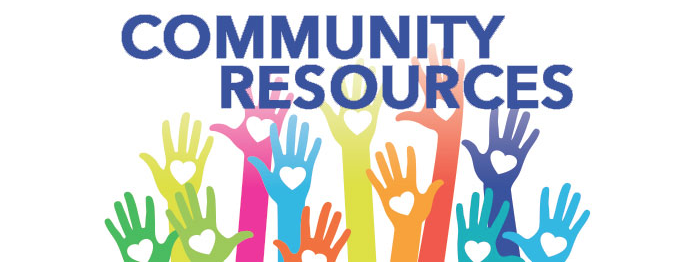— by Susan McBain, Orcas Issues Reporter —
The Orcas Island Health Care District met just once in the month of February, reporting mostly incremental progress on its long-term plans for the Orcas medical care system. But one fact was glaringly clear: the current estimate to replace the roof of the clinic building in conjunction with the
HVAC system is unaffordable as designed.
The District owns the building in which the UW Neighborhood Clinic (UWNC) is operating, and the commissioners have known since the purchase that the roof needed replacement. The HVAC system,while functional, is beyond its lifetime and has known inadequacies. Following the advice of various experts on roofing, HVAC systems, and how they interact, the District commissioners sought to tie the two projects together. However, rather than fitting within the budgeted $450,000, the estimated cost has ballooned to $1.6 million. That bid came from two contractors through a statewide purchasing coalition for public entities called KCDA. The engineer who designed the HVAC system felt the bid was unreasonable, so the commissioners plan to open the job to additional bids, hoping some will be considerably lower. The plan may also need to be modified to include design changes, phased construction, or perhaps a more modest HVAC system. In any case, the commissioners hope to have the roof replaced this year.
The commissioners continue to study the options for partnering with existing medical service providers, as well as the impact of becoming either a Federally Qualified Health Center (FQHC) or Provider-Based Rural Health Center (PB-RHC). Those designations have the potential to significantly improve reimbursements for Medicare and/or Medicaid patients, which constitute more than half of the Orcas patient population. Likely FQHC partners are still being identified. Several PB-RHCs are being considered,
among them Island Hospital and PeaceHealth. District Superintendent Anne Presson reported on a positive meeting with the new CEO of Island Hospital, Charles Hall, who impressed her with his understanding of medical issues on Orcas and his innovative thinking. Regional leaders at UWNC plan to meet with Island Hospital leaders in March; there may be a chance for collaboration between them, according to Presson.
The commissioners want to keep exploring possibilities with other PB-RHCs as well. Their goal is to prepare a Request for Proposal, one that addresses all commissioner questions and issues, and distribute it to possible partners by May.
The commissioners had hoped to have the two existing clinics, UWNC and Orcas Family Health Center, exchange visits, getting acquainted with each other’s practices in case they decide to work on a joint proposal. Schedules don’t allow a meeting in March, so Presson will try to work out a time in April.
The departure of a staff member at UWNC has created short-term difficulties in the lab. Currently, lab work will be conducted only when requested by a provider during a patient visit, and courtesy labs will be very limited. UWNC hopes to have all services restored in the next month.
The scheduled March 3 regular meeting will probably be postponed. The next regular meeting is scheduled for March 17, 5 p.m., at the Eastsound Fire Hall.
**If you are reading theOrcasonian for free, thank your fellow islanders. If you would like to support theOrcasonian CLICK HERE to set your modestly-priced, voluntary subscription. Otherwise, no worries; we’re happy to share with you.**








It seems report worthy to note that a group of community members was present and voiced their concerns at the two public comment sessions. Some present were members of the team that had negotiated with Island Hospital and UW during the last period of uncertainty, before voting in the present Orcas healthcare commission.
These comments entailed a hope that they would not lose their family physician at UW with restructuring, and a fear of what might happen if we are once again wedded to Island Hospital in our search for an industry ally to help our finances and continue needed services.
There is understandable cynicism about the power of one new IH CFO to entirely alter the organizational culture that has had, by some estimations, so harmed Orcas healthcare over such a long period. The concern over preserving the longstanding relationship with a family care provider is related to this instability under the auspices of Island Hospital management.
There did seem to be a basic lack of understanding however, that a prime reason for restructuring Orcas healthcare is that we are unable to sustain the funding demands of the two clinics. That we are not able to meet this demand with any legal level of tax increase. So raising taxes even with their unanimous consent, is not an option, regardless of other opinions.
IMHO the prolonged timeline for researching and restructuring our healthcare system gives us time to consider and discuss what our priorities are, long and short term, for our public healthcare district. But the outlines are already determined, we just need to consider specifics.
“Those designations have the potential to significantly improve reimbursements for Medicare and/or Medicaid patients, which constitute more than half of the Orcas patient population.” As someone who has worked directly with Medicare and Medicaid reimbursement over 40 years, I question (again) why the District would undertake to become a “provider,” with the liability and responsibility that incurs. It simply does not have the staff to operate or the budget to bail out an RHC or FQHC should it begin to run a deficit. Even “significantly improved” Medicare and Medicaid reimbursement is not necessarily sufficient reimbursement.
Based on what I can see on the District website, its ~ $1.15 million budget for 2019 was apparently exceeded by $400,000, and its 2020 budget is $2.5 million! $700,000 of this is budgeted for UW and $400,000 for Orcas Family Health. And then there are the expenses for maintenance of the “gift” building. The District can raise only about $1.5 million per year unless it raises the levy. (It wouldn’t need to raise the levy after only two years, will it?). I apologize if I’m reading the charts incorrectly, and welcome any clarification or correction.
Do we have after-hours care yet? (Other than our EXCELLENT EMTs, who are paid from another tax fund or are volunteers, bless them.)
This is hugely frustrating.
“I question (again) why the District would undertake to become a ‘provider,'”
The two halves of this first assertion are unrelated. The PHD need not -necessarily- become a provider to apply for a change of scope as a unified RHC, OR to partner with a hospital-based RHC or affiliate itself with an FQHC [which are the 3 major options open to us]. The PHD & dot.gov websites have sufficient information to do your homework on this. And we do not need to rehash the entire discussion about how.. and why virtually every other Public Hospital District owns its own business.
“Do we have after-hours care yet?”
The PDH receives monthly reports from both clinics detailing their afterhours care, which they have been providing virtually since the start. I read them to understand the kinds of services required for wider community..
~wait for it..
*Access*. Dr. Russell now at the UW clinic, but on behalf of the district, is working with the OIFR EMS to iron out the complexities of this rural 4-way..
~wait for it..
*Collaboration*. It is a welcome development! It is very hard to break down longheld institutional barriers that have become enshrined in protocol, procedure, and institutional/ professional culture.
I disagree. I’ve spent 40 years helping entities apply for Medicare certification and I assure you that the PHD must become a provider/supplier to run its own RHC or FQHC or ordinary clinic. To “partner” with a hospital-based RHC or affiliate itself with an FQHC depends on what “partner” means. If it’s just subsidies, no. If there is a new joint entity created, yes. I’ve done my homework on this, thanks. I’ve lived and breathed it for decades, which is why I’m concerned. Vrtually every other Public Hospital District owns its own “business” because most counties have the population to support an entity like that.
As for after hours care, all I saw was telephone calls.
“DO try to keep up.”